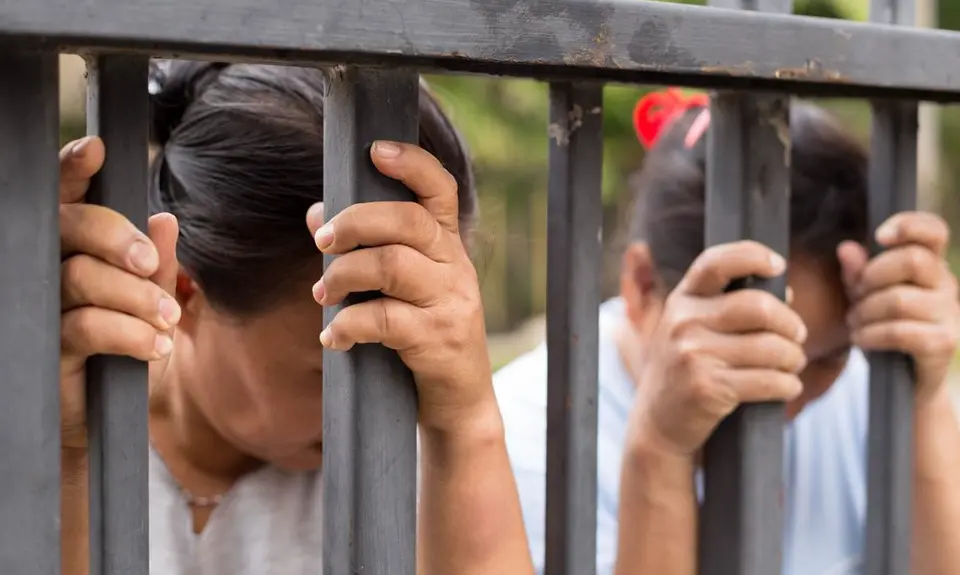“Confirmed Judges, Confirmed Fears” is a blog series documenting the harmful impact of President Trump’s judges on Americans’ rights and liberties. Cases in the series can be found by issue and by judge at this link.
Trump Ninth Circuit judge Bridget Bade tried in dissent to uphold a Bureau of Immigration Appeals (BIA) ruling that a woman who testified that she was repeatedly and violently arrested and abused by Vietnamese police lacked credibility in her claim for asylum. The majority, which included a judge appointed by President George W. Bush, rejected Bade’s argument and reversed the BIA ruling in its August 2020 decision in Hong T. Vo v. Barr.
Hong Vo, a citizen of Vietnam, sought asylum in the US. She testified that she had suffered from “repeated arrests and violent interrogations” by Vietnamese police, including being “arrested and released several times in a period of days” and suffering “abuse” while in custody. The Immigration Judge (IJ) and the BIA denied her application, however, because they thought her testimony was not credible. She appealed to the Ninth Circuit.
In a 2-1 unsigned opinion, the Ninth Circuit majority, which included Zach Zouhary who was nominated by President George W. Bush, reversed the decision and remanded the case to the BIA to reconsider Vo’s credibility and application. They found there was not substantial evidence as required by law for the three grounds relied upon to find that Vo was not credible, or that those grounds were trivial.
Initially, the BIA contended that Vo had been inconsistent as to whether her mother came to the police station after her initial release. She testified that she
“went home with her mother” at one point but had stated in her asylum interview that she had to “find my way home by myself.” The BIA also noted that Vo first testified that her mother came to her holding cell but later clarified that she met her mother at the gate. As the majority noted, these may not have been inconsistencies “at all” since they may have referred to different arrests and releases in a period of a few days, and they were “peripheral detail[s]” that did not undermine her credibility as to the abuse she claims to have suffered. The majority quoted other Ninth Circuit decisions that recognized that abuse victims “often confuse” such details and that such “trivial inconsistencies” properly have “no bearing on a petitioner’s veracity.”
Second, the BIA noted that Vo’s declaration stated that she was arrested a second time “on approximately June 17, 2018,” but that she testified that the second arrest took place on June 26, 2018. “Such a minor discrepancy,” the majority went on, is an “insufficient basis for an adverse credibility determination.”
Finally, the BIA criticized Vo’s failure to disclose “allegations of sexual assault” about Vietnamese police prior to the actual testimony, when she stated that a policeman squeezed her breast. When asked why she did not say this previously, she replied that she was concerned that if she stated this earlier, members of her family in the US would find out and tell her mother, who was still in Vietnam, and that her mother would likely complain to police who would then beat her.
Trump judge Bade’s dissent focused on this issue, claiming that because Vo had “created a more compelling account of persecution” at her hearing, the agency was “well within its bounds to rely on this inconsistency” to find Vo not credible.
As the majority explained, however, Vo’s initial failure to disclose the sexual assault was “not a true inconsistency” but instead a “further elaboration” at the hearing of the “abuse she suffered in custody.” In addition, the majority noted, the court had previously explained in another case that the claim that the “timing of a victim’s disclosure of sexual assault is a bellwether for truth” is in fact “belied by the reality” of “delayed reporting” of such assaults that often occurs.
As a result of the majority’s decision, Vo will have another opportunity to establish her credibility and obtain asylum to prevent a repetition of the abuse she has suffered. If it had been up to Bade, however, she would not have that chance.
